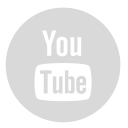Early Childhood Educator
Information you need to know to work as an Early Childhood Educator
Who is the licensing body responsible for Early Childhood Educators?
The Alberta Child Care Licensing Regulation requires that all educators in licensed day care programs, out-of-school care programs, and preschools have completed training in child development or training considered equivalent.
What are the certification requirements for internationally educated Early Childhood Educators?
Note: Licensing bodies compare international education and experience to Canadian standards.
Internationally educated Early Childhood Educators must:
- Ensure that your English meets the minimum Canadian Language Benchmark Assessment requirements of 7 in each of reading, writing, listening/speaking; the Child Care Certification Office accepts CELPIP General with a score of 7 in all categories, or IELTS General with a score of 6 in all categories.
- Apply to the Alberta Child Care Staff Certification Office.
- For Child Development Assistant, photocopies of documents are acceptable.
- For Child Development Worker or Child Development Supervisor, arrange for your official documents to be sent directly to the Alberta Child Care Staff Certification Office from your educational institution. If your documents are not in English, the Certification Office will make a “certified true copy” and send this to you. Take the copy to a certified translator, and once complete, submit the translation to the Certification Office. Immigrant Services Calgary offer translation services.
Note: Early Childhood Educators are divided into three categories for certification.
Child Development Assistant – must complete one of the following courses:
- The Childcare Orientation Course offered for free through the Government of Alberta.
- A 45-hour course (3 credit) post-secondary course in child development.
- The step ahead family day home training or Family Child Care Training Program through an approved Alberta family day home registered with the Alberta Family Child Care Association (AFCCA).
Child Development Worker – must hold a one-year Early Learning and Child Care Certificate from an Alberta post-secondary institute or an approved equivalency AND meet the language proficiency requirements as set out by Children’s Services Alberta.
Child Development Supervisor – must hold a two-year Early Learning and Child Care Diploma from an Alberta post-secondary institute or an approved educational equivalency AND meet the language proficiency requirements as set out by Children’s Services Alberta.
For complete information on the certification requirements for Early Childhood Educators, visit the Alberta Human Services Child Care Staff Certification website.
What are the educational requirements for internationally educated Early Childhood Educators in Alberta?
In Alberta, the following post-secondary institutions offer directly-related programs:
- Blue Quills First Nations College in St. Paul
- Bow Valley College in Calgary
- CDI College in Edmonton
- Grande Prairie Regional College in Grand Prairie
- MacEwan University in Edmonton
- Keyano College in Fort McMurray
- Lakeland College in Vermilion
- Lethbridge College in Lethbridge
- Maskwacis Cultural College in Hobbema
- Medicine Hat College in Medicine Hat
- Northern Lakes College in Slave Lake
- Portage College in Lac La Biche
- Red Deer College in Red Deer
What are the accepted English language proficiency tests and where can I be tested?
Applicants for Child Development Worker or Child Development Supervisor certification must achieve a score of 7 or higher in all categories on the CELPIP General, or a score of 6 or higher in all categories on the IELTS General. This is equivalent to 7 on the Canadian Language Benchmarks Assessment (CLBA) test. To learn more about where to take an English language proficiency test in Alberta, visit the link to English Language Proficiency Tests and Locations.
What resources and supports are available for internationally educated Early Childhood Educators?
Directions for Immigrants offers workplace communication groups to help you integrate into the Canadian work environment. The Clear Communication for Business workplace communication group is designed to help internationally educated professional fine-tune their communication skills with colleagues, supervisors, and clients. In one week, you will learn through role-play and scenarios the nuances and expectations of the Canadian business culture. Topics include active listening, assertiveness, conflict resolution, problem solving, and teamwork. Visit Clear Communication for Business for more information.
What information resources are available for Early Childhood Educators in Alberta?
Additional Occupational Information
For more information on occupations, duties and wages, visit:






